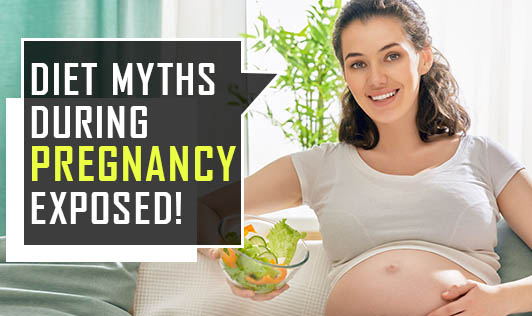There are several diet myths for pregnant women that are wrong. Here are some of the most common ones:
- “You need to eat for two”: This is a common myth that suggests pregnant women should eat twice as much as they normally would. However, this is not true. While it’s true that pregnant women require more nutrients, they only need an additional 300-500 calories per day.
- “You should avoid seafood”: Seafood is an excellent source of omega-3 fatty acids essential for fetal brain development. While it’s important to avoid certain types of fish that are high in mercury, such as shark and swordfish, pregnant women can safely consume up to 12 ounces of low-mercury seafood per week.
- “You should avoid all caffeine”: While it’s true that excessive caffeine intake can be harmful during pregnancy, moderate caffeine consumption (up to 200 milligrams per day) is safe. This is equivalent to one 12-ounce cup of coffee.
- “You should avoid all fats”: Fats are an important energy source and help the body absorb certain vitamins. Pregnant women should consume healthy fats like nuts, seeds, and fatty fish.
- “You should avoid all carbohydrates”: Carbohydrates provide energy and are an important source of fiber. Pregnant women should focus on consuming complex carbohydrates, such as those in whole grains, fruits, and vegetables.
ALSO READ:
Diet Plans Based On Blood Type O
What Diet is Good for The Pregnant Woman
Five Scientific Reasons That Women Difficult Lose Weight
Overall, pregnant women should focus on consuming a balanced diet that includes a variety of nutrient-rich foods. Talking to a healthcare provider about any dietary concerns during pregnancy is also important.






















